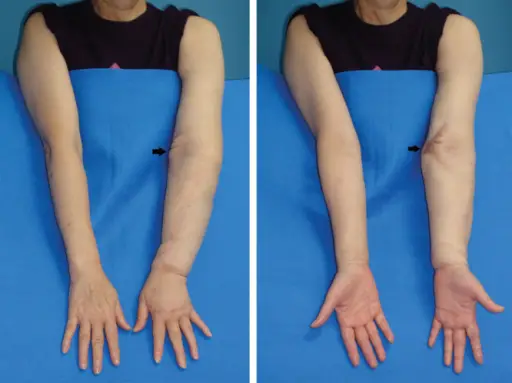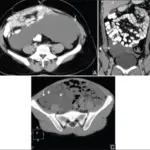Lymphedema is an atypical protein-rich fluid collection in the interstitium resultant of obstruction of lymphatic drainage.
What is the Pathology of Lymphedema?
The pathology of lymphedema is:
-Etiology: The cause of lymphedema is tumors, associated with lymphatic system, surgical procedures severing lymphatic connections, and familiar factors.
-Genes involved: NA.
-Pathogenesis: The sequence of events that lead to lymphedema is a result of congenital peripheral lymphatics aplasia or hypoplasia or by valvular incompetence in case of primary lymphedema. Acquired blockade to the lymph nodes or by local lymphatic channels disturbance producing the clinical manifestation.
-Morphology: The morphology associated with lymphedema shows diffuse dermal edema.
-Histology: The histology associated with lymphedema shows hyperkeratosis, acanthosis, parakeratosis.
How does Lymphedema Present?
Patients with lymphedema are typically common in females. The symptoms, features, and clinical findings associated with lymphedema include, among others, swelling of the extremity, fatigue, fevers, daily activity impairment, recurrent cellulitis, microbial infection, and chills.
How is Lymphedema Diagnosed?
Lymphedema is diagnosed through the clinical presentation, physical examination. Laboratory studies-LFTs, BUN/Creatinine levels, urinalysis, and CBC count. Imaging studies such as plain radiographs, CT-scan, MRI-malignancy, ultrasonography may be helpful.
How is Lymphedema Treated?
Lymphedema is treated through medical care- pharmacotherapy benzopyrones, retinoidlike agents, anthelmintic agents, and antibiotics. Non-pharmacotherapy elevating affected limb, weight loss, avoiding trauma. Palliative surgical care.
What is the Prognosis of Lymphedema?
The prognosis of lymphedema is good.



